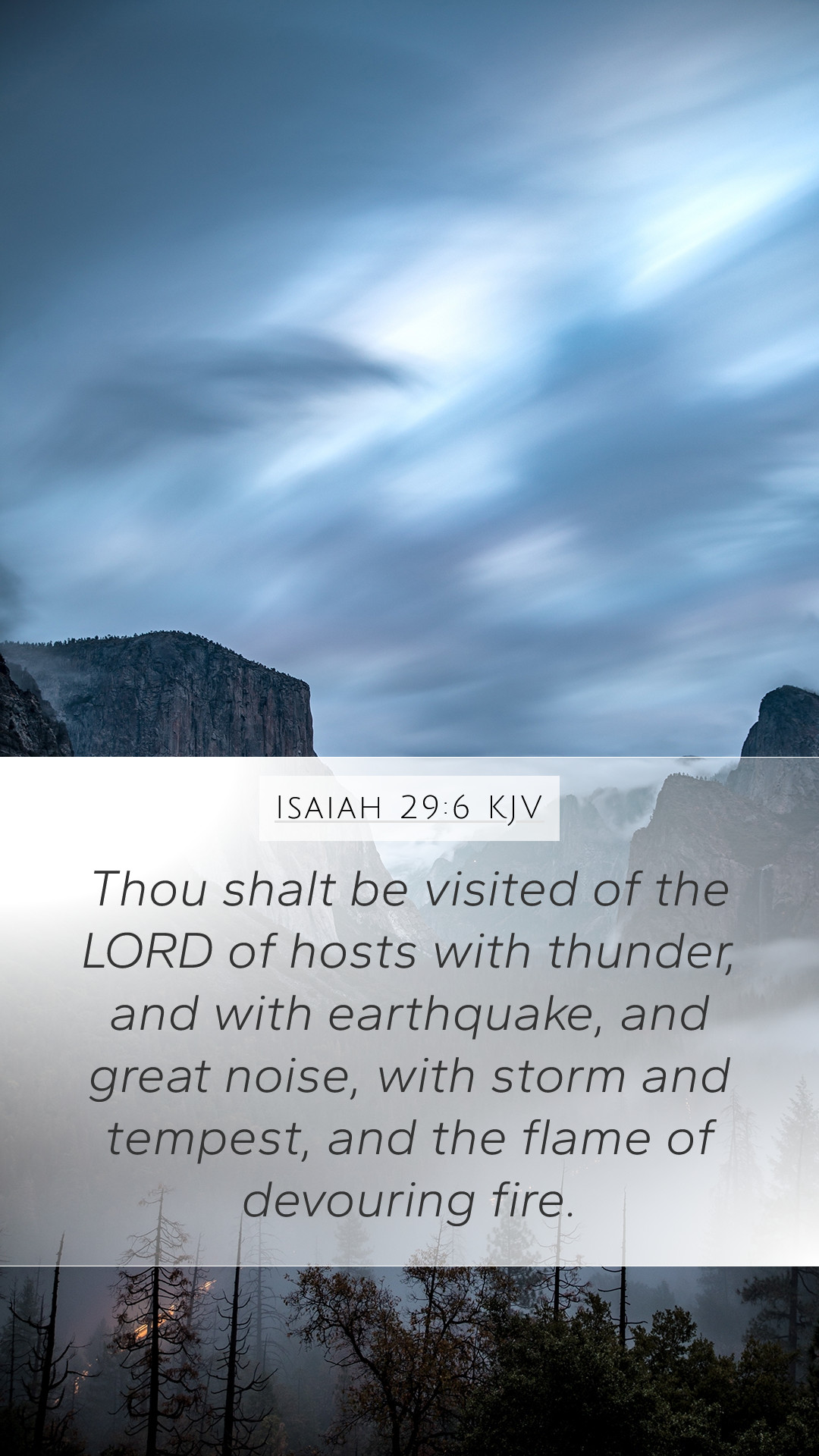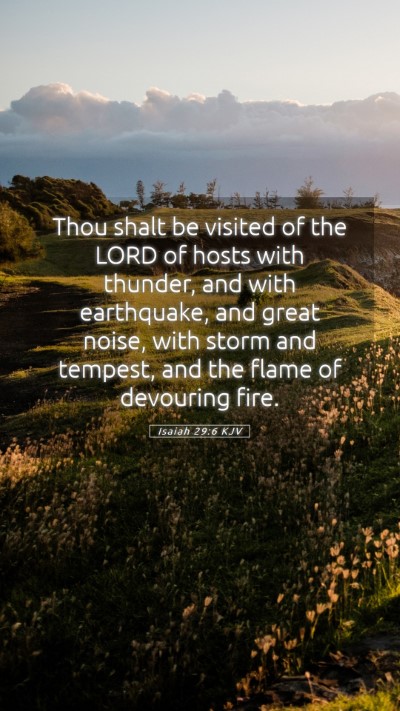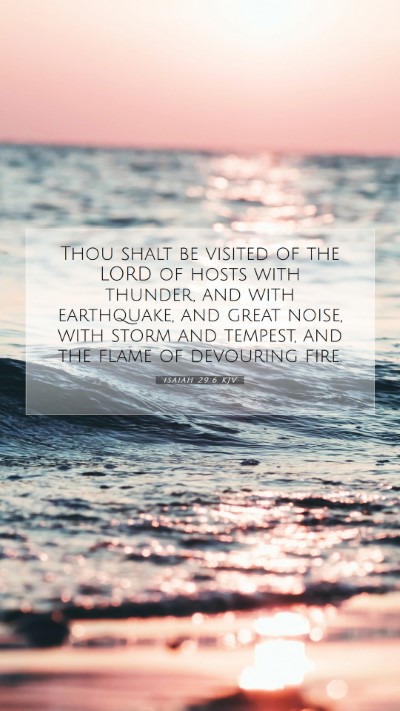Understanding Isaiah 29:6
Isaiah 29:6 is a powerful verse that emphasizes God's omnipotence and the divine judgment against those who oppose Him. This verse reminds us of the significance of divine intervention in times of trouble and the futility of human efforts when faced with God's will.
Bible Verse Meaning
The main theme of Isaiah 29:6 revolves around God's ability to enact judgment and deliverance. The verse states:
"Thou shalt be visited of the Lord of hosts with thunder, and with earthquake, and great noise, with storm and tempest, and the flame of devouring fire."
Key Insights from Public Domain Commentaries
- Matthew Henry: Henry emphasizes the vivid imagery used in this verse, highlighting that God's visitation is not only mighty but also filled with elements of awe and fear. He notes that such phenomena symbolize God's power and the seriousness of His coming judgment.
- Albert Barnes: Barnes provides an interpretation focused on the historical context, suggesting that this prophecy serves as a warning to Jerusalem regarding the impending disaster due to their disobedience. He links the elements mentioned (thunder, earthquake) to divine retribution and calls for reflection on one's standing before God.
- Adam Clarke: Clarke analyzes the significance of the ‘flame of devouring fire,’ indicating that it represents purification and destruction of the wicked. He encourages believers to understand that while God is a God of mercy, His holiness demands justice.
Bible Study Tools and Resources for Deeper Understanding
For those engaged in Bible study groups, online Bible study, or seeking Bible study guides, understanding Isaiah 29:6 can deepen one’s spirituality and awareness of God’s nature.
Applying Isaiah 29:6 to Daily Life
When contemplating the implications of this verse, consider the following:
- Reflection: Assess your own life in light of God’s judgment. Are there areas that require repentance or redirection?
- Awareness: Recognize that challenges may serve as divine reminders for alignment with God’s will.
- Encouragement: Understand that God's sovereign hand is always at work, even in chaos.
Historical Context and Cross References
This verse should be understood in the wider narrative of prophetic literature in the Old Testament. Similar themes of divine judgment and the power of God are echoed in:
- Isaiah 2:19: Describes the fear of the Lord and people hiding in caves from His terror.
- Amos 1:2: Highlights God's roaring from Zion and His judgment against nations.
- Matthew 24:7: Jesus mentions earthquakes and disturbances as signs of the end times, connecting to God’s ultimate authority.
- Psalms 46:6: "The nations raged; the kingdoms were moved: he uttered his voice, the earth melted."
- Revelation 11:19: Discusses divine judgment and the appearing of God's temple, illustrating the cosmic significance of God's actions.
- Micah 1:3: "For behold, the Lord cometh forth out of his place, and will come down, and tread upon the high places of the earth."
Conclusion
Isaiah 29:6 serves as both a caution and a comfort. It reminds believers of the seriousness of God’s judgments while also reassuring them of His ultimate power over creation. Engaging in biblical exegesis of this verse leads to a profound understanding of divine justice and mercy, making it a vital part of Bible study insights.
Final Thoughts for Bible Study
As you study Isaiah 29:6, consider using Bible study materials and seeking guidance from Bible study lessons and Bible study courses. This will enhance your grasp of Scripture analysis and contribute significantly to your spiritual growth.


